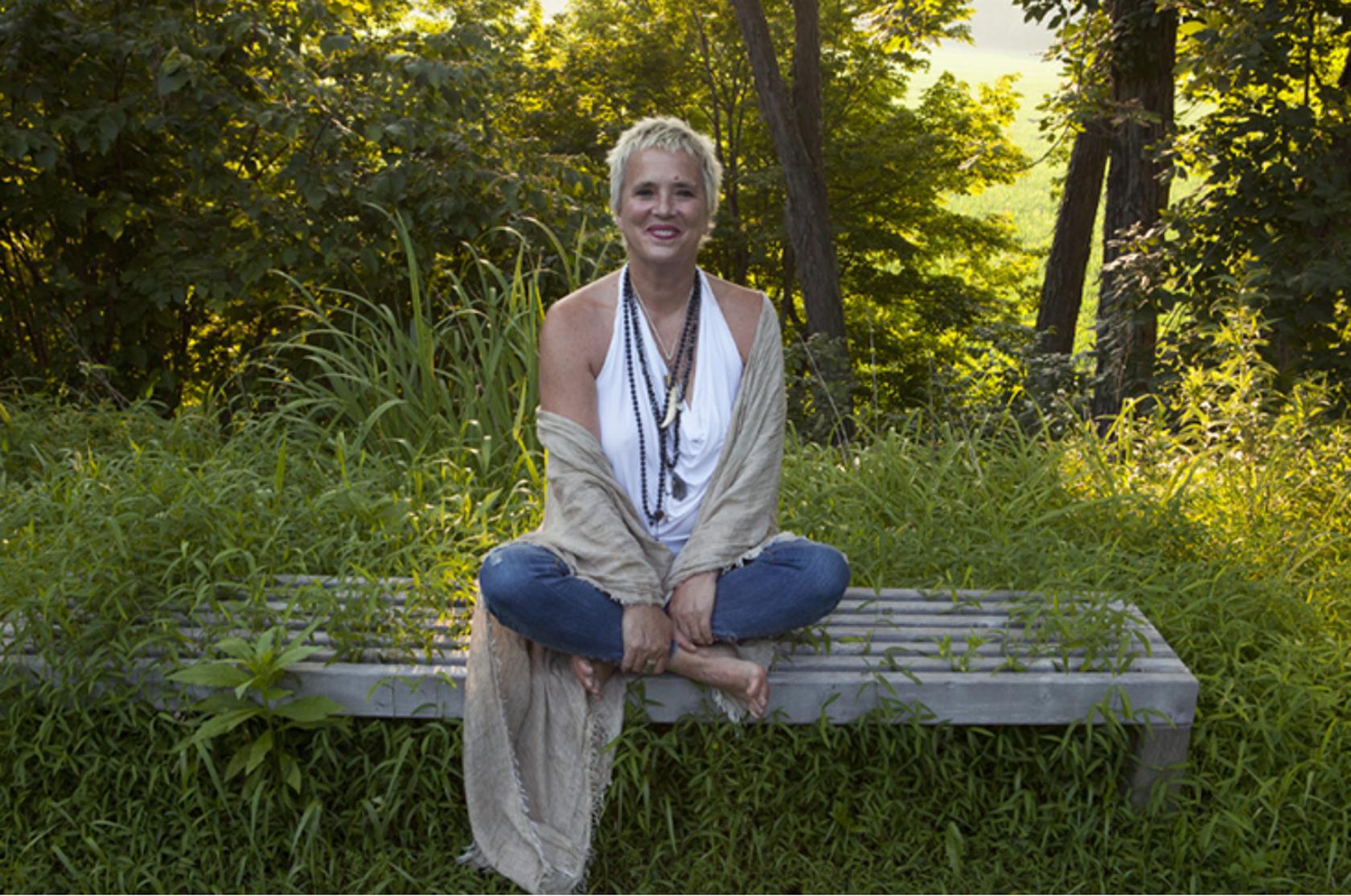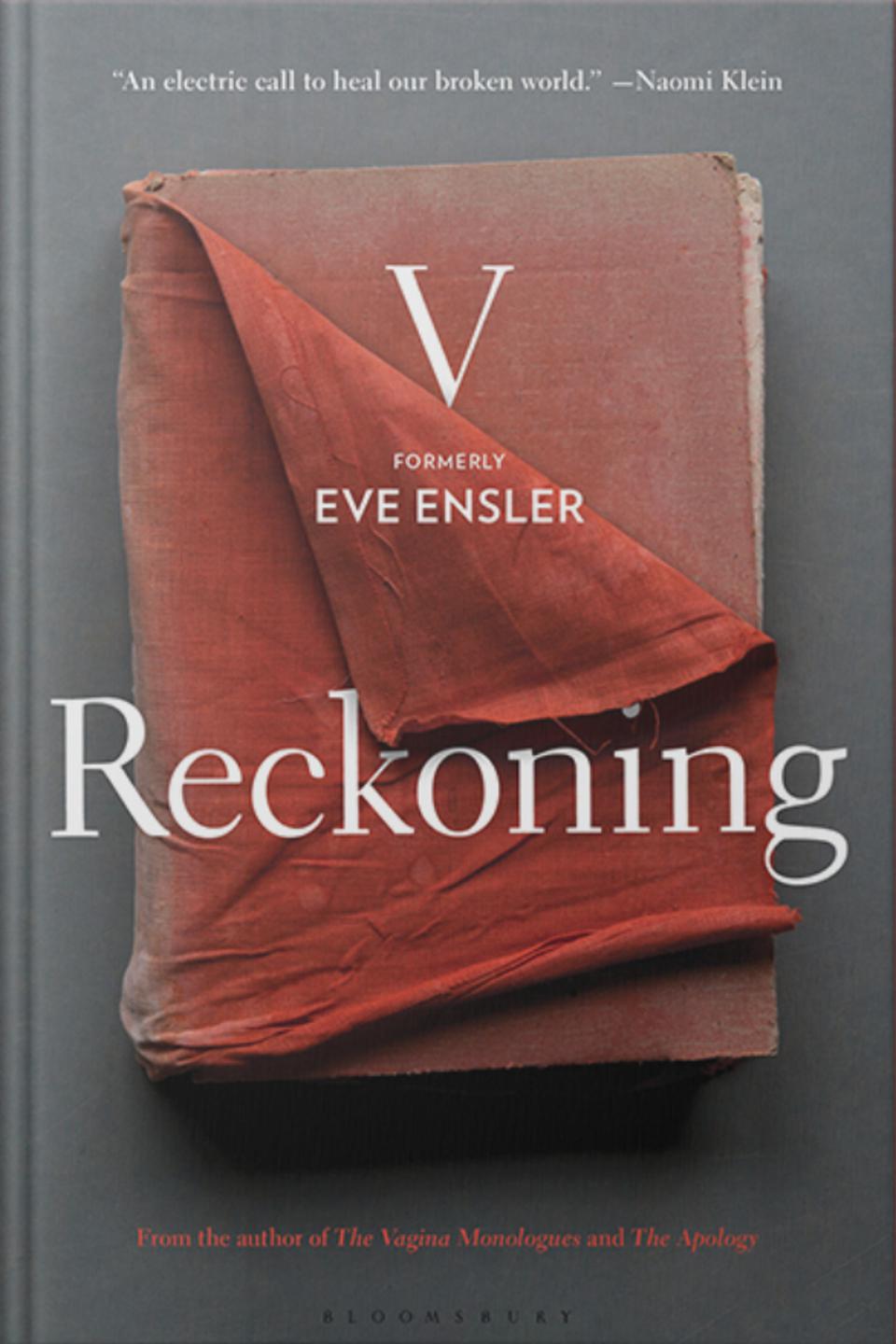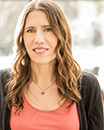
There is much we can learn about leadership, solidarity and actualizing a bold vision from V (formerly Eve Ensler), the Tony award-winning playwright, author and activist. Her iconic play The Vagina Monologues has been published in 48 languages and performed in more than 140 countries, and was the spark that inspired her to launch her transformative organization V-Day, the global activist movement to end violence against women, gender expansive people, girls and the planet. V-Day—which has raised over $120 million for grassroots anti-violence groups, rape crisis centers, domestic violence shelters and safe houses around the world—celebrates its 25th anniversary this February and recently premiered VOICES, an audioplay and campaign grounded in Black women’s stories of the African continent and diaspora. V is also the founder of One Billion Rising, the largest global mass action to end gender-based violence in over 200 countries, and a co-founder of the City of Joy, a revolutionary center for women survivors of violence in the Democratic Republic of the Congo, along with Christine Schuler Deschryver and Nobel Peace Prize winner Dr. Denis Mukwege.
V, who has been named one of Newsweek's “150 Women Who Changed the World” and the Guardian's “100 Most Influential Women,” is the author of several books, including The Apology and the New York Times bestseller I Am An Emotional Creature, and she has just published Reckoning, a powerful memoir already named by Publishers Weekly as one of their Top 10 Memoirs of the Season. In Reckoning, V draws upon 45 years of her life as an artist and activist, sharing poetry, letters, essays and notes from her journals that take readers with her across the world and a range of issues—from atrocities happening to women, to the climate crisis, to homelessness, activism, family and more. She writes candidly about her journey overcoming abuse and self-hatred to find her own voice and power, which she drew upon to fuel her transformational writing and activism. She writes, “I have been blessed to travel the world, to know an astonishing array of scents and accents, to have moved my hips to the rhythms of resistance in many musical languages. I’m not a sightseer. I have spent my days in prisons, theaters, shelters for the unhoused, refugee camps, detention centers, women’s centers, cafés, and clandestine locations. There, I have learned the world mainly through the faces, bodies, scars, and stories of women who have suffered the greatest injuries but who still manage to transform their pain into radical action, new forms of leadership, art, gardens, medicine, and healing.”
In the following interview, V talks about her timely new book and shares insights on leadership, self-love, turning “pain into power” and much more.
Marianne Schnall: Each of your amazing books represent a different stage of your life and new reflections and life lessons. What does your latest book Reckoning mean to you? What are you hoping readers will take away from this book?

This book is about reckoning emotionally, psychologically and politically. For me, they've never been separate. I think it’s clear that reckoning is the call of the day. It started to happen over Covid, a pandemic, a respiratory disease that was literally choking the breath of thousands, and then hundreds of thousands, and then millions of people. We saw George Floyd with the brutal knee on his neck, those diabolical nine public minutes, which took his breath. We saw fires burning all over the West where wildlife gasped for air. We saw a failed infrastructure in the richest country in the world that had no ability or will to provide its citizens with healthcare. We saw the poor, Black and Brown people and healthcare workers who were trying to keep us all alive be sacrificed.
How are we living in a country that has never reckoned with its own history, never dealt with the fact that the land we live on was actually stolen out from under the Indigenous people who lived here, and we killed them and gave them diseases and devastated and denied their traditions and moved them off their sacred land, which they were stewards of? Then we moved right into the 400 years of slavery and lynchings and killings and destruction of African Americans, which moved right into Jim Crow, which moved right into mass incarceration. So there’s a massive reckoning that began to happen during Covid. And I wanted this book to be my offering to that reckoning.
I wanted this book to trigger people, not in a way where they're overwhelmed and they can't function, but where they feel, they feel the moment we're in and they feel what other people are feeling in this moment. I wanted it to inspire them to look into their own history. For example, as a white person, what is your connection to the history of white supremacy in this country? How have you benefited from it and how do you continue to benefit from it? What is your responsibility? How are you going to be part of transforming that history and moving us into a future of freedom and equality?
Schnall: You have been an incredible leader throughout your life and spent time working in close connection with grassroots leaders, and you’ve inspired many women to become community and political leaders. One powerful example of that is Agnes Pareyio, who opened the V-Day Safe House for Girls in Kenya 20 years ago and was recently elected to the Kenyan parliament. There’s also Célia Xakriabá and Sônia Guajajara who were elected to the Brazil National Congress and Rada Boric was elected to the Croatian parliament. How has V-Day and your work inspired and catalyzed women across the globe to become leaders?
V: We're really seeing now how women leaders who have devoted their lives to transformation of the grassroots are actually getting elected to governments and accruing a new kind of power. But it's not about power for power’s sake. I listened to Agnes' first speech in Parliament. It was so radical and true to the people she represents, and I was like, “They don't know what they're in for.” Same with Rada. These women are the real deal—the Cori Bushes of the world. They've been on the frontlines, have engaged in the deepest struggles, faced the greatest hardships and are now transforming their communities. They can’t be controlled or manipulated because they’re not motivated by money or the need for fame and status. What drives them is the simple desire to make sure that what happened to them and their community doesn’t happen to anyone else.
Schnall: One Billion Rising’s 2023 theme is “Rise for Freedom and Create the New Culture.” What is the “new culture” you're hoping to create?
V: The new culture starts with the end of patriarchy—it is a culture of cooperation, not domination, where art is central. It respects feeling, going slowly and healing things. It honors, serves and cherishes the Earth, and understands that we are not separate from her. A culture of interdependence and reciprocity. A culture that refuses extraction and exploitation. That strives for equality, inclusion, diversity and shared wealth. A culture of play and dance and magic and mystery. Where no one is left out and loneliness is a memory and there is no arriving or competing. A culture where we are not products but in a collective process. A world where each of us—each of our lives, our gender, our identity, our purpose—is a work of art, always evolving, only existing in the becoming.
Schnall: In one of our previous interviews, you told me, “My whole life I’ve been told that I’m too emotional, too extreme, too dramatic, too intense, too alive—and I started to think, ‘What if I actually saw that as my advantage and saw that as my strength and saw that as my gift?’” And I think women today, particularly women looking to become leaders or advance in their work and careers, may feel pressure to act in ways that aren’t authentic to them in order to succeed, which might include hiding emotions and parts of themselves they think may be seen as “too much.” What advice do you have on being your authentic self and why being “too much” is actually a source of strength?
V: I’ve always been told I was too much: too intense, too emotional, too worried, too too too. I heard someone say recently that sensitivity has gotten bad PR. The heart, when it's open, is one of the most brilliant, insightful, intuitive, wise organs. It’s a means to understand the world, and yet we have been taught not to trust it. We've subsumed the heart to the altar of science and intellect. We can know all kinds of things, but if we’re not connected to what we know, if we’re disassociated from what we know, what does it actually do for us? Information and theories are empty and rather pointless if we are not connected to them in a way that gets us to act.
The only thing that really matters is action. You can talk all you want about caring for people, but what are you doing to manifest that? You can say you really believe in ending racism, but what are you doing to be actively anti-racist? You can say you really support women and trans women and non-binary people being safe, being fulfilled, having platforms for their voice and creativity. What have you done to make that happen? Those who have very intense emotions end up being the people who bring about the most powerful actions. People who are outraged, people who are upset, people who are passionate and sorrowful, people who allow themselves to feel grief—they are often motivated to create something beautiful and new.
I learned through various programs, through therapy, through writing and activism, that I could direct my intense feelings to bring about positive change for other people and myself. I could make beauty and family and plays out of those emotions. Empathy will be the core of our survival.
Schnall: You've written and spoken so much about overcoming self-hatred, which I know is a relatable struggle for many women and girls. What advice do you have on finding self-love?
V: Capitalism is dependent on self-hatred. It feeds off it. So the first thing to know is that a lot of your self-hatred is manufactured. Capitalism and the agents of social media and advertising keep us in a state of ongoing comparison where no one ever feels like enough. Then we are encouraged to buy and consume products to become enough.
I think we need to ask ourselves, when do we truly feel valuable? For me, I know I feel better when I am connected to community, to the collective, when I have gone outside my limited self. I feel valuable when I have been part of something that has made someone's life better or a group of lives better. I know where my bliss lies. And I think everybody has to find that. I ask people often, “When are you happy?” Pay attention: “When do you feel good?” I love who I am and who I have been in this V-Day movement—in deepest connection with my sisters. There is no greater feeling than solidarity. That is bliss.
Schnall: What is your call to action?
V: Don't be afraid to act on what you believe. Don't be afraid to stand up and say what you feel. We need everybody's voice right now. We need everybody's vitality right now. We need everybody's action. It can't just be a few people who are doing it. When you put up a building with two people, it takes years. When you build it with a hundred people, it takes a few days. And we've got to build a new world, so we need everybody involved in this story.
For more about V and her work visit V’s site and V-Day.
This interview has been edited for clarity and brevity.
This interview was originally published at ForbesWomen.
***

Marianne Schnall is a widely-published interviewer and journalist and author of What Will It Take to Make a Woman President?, Leading the Way, and Dare to Be You: Inspirational Advice for Girls. She is also the founder of Feminist.com and What Will It Take Movements and the host of the podcast ShiftMakers.
You can find out more about her work and writings at www.marianneschnall.com.